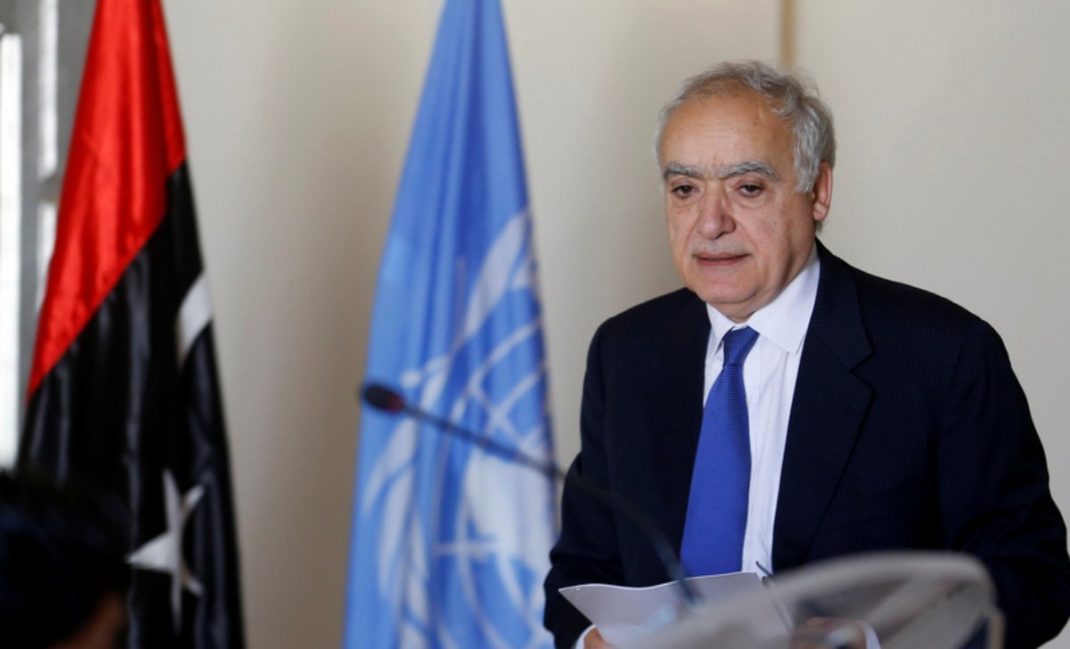By Elissa Miller
Western stakeholders in Libya must fall in line with Salame and abandon the narrow pursuit of self-interest.
Ghassan Salame, the UN secretary-general’s special representative to Libya, has engaged in a kind of shuttle diplomacy to secure acceptance of a new UN transition plan. At the UN General Assembly, Salame announced the plan, which envisions “a qualitative leap towards a capable, stable and dignified state.”
Based on three major sequential steps, the plan is practical. It could, if realised, contribute greatly to establishing stability but the intransigence of some stakeholders and remaining incentives for spoilers could derail it.
The first stage, which began in Tunis immediately following the General Assembly, involves convening members of the eastern House of Representatives (HoR), allied with Field Marshal Khalifa Haftar, and the High Council of State (HSC), a supervisory body overseeing the internationally backed Presidential Council, to discuss amendments to the Libyan Political Agreement (LPA).
The second stage is a national conference under the auspices of the UN secretary-general. The conference will aim to provide an inclusive platform for Libyans to have a say in the transition process, thereby contributing to a national reconciliation effort. The conference would develop recommendations for a draft constitution, which would be put to a referendum during the plan’s final stage. The final stage would include legislative and presidential elections.
Salame convened members of the HoR and the HSC in Tunis to begin talks on reforming the LPA. There is general agreement on the necessary amendments, including reducing the membership of the Presidential Council from nine to three and abolishing Article 8 of the LPA, which would place the military under the Presidential Council’s civilian oversight.
Salame called the Tunis meeting “a window of opportunity” for reconciliation between the major parties. Encouragingly, heads of the HoR and HSC delegations expressed commitment to a political process based on common rather than self-interest.
As promising as the conversations in Tunis may have been, the next steps in Salame’s plan are significantly more challenging. This was clear from Haftar’s visit to Rome while Salame was gathering the HoR and HSC delegations in Tunis.
During her meeting with Haftar, Italian Defence Minister Roberta Pinotti reportedly stressed Rome’s support for the UN process and its rejection of military solutions to the conflict. However, the optics of the strongman’s engagement with Italian officials only a few months after he was received in Paris were suggestive. Haftar’s Rome visit while Salame was trying to jump-start the new UN plan indicated he could be a spoiler.
By continuing to garner international recognition as a key player in Libya, Haftar has ensured he is a factor in any transition plan. That backing might reduce the need for Haftar to engage with Salame’s transition process.
Indeed, some in Rome appear to believe that Haftar is the only actor who can establish security in Libya and stem the flow of migrants to Italy. The UN-backed government in Tripoli, which Rome officially backs, is not able to effectively counter migration from Libya to Europe.
Another hurdle facing Salame’s plan is the organisation of a massive national conference for rival and marginalised Libyan parties. Aside from the logistical elements of such a conference, it will be no easy task to extract clear and unified recommendations for a new draft constitution.
National reconciliation is needed in Libya but this must be a long-term process. A rushed reconciliation effort could contribute to further conflict. The patience and inclusive environment required by this process could test the resolve of some actors.
While the new UN plan for Libya has the potential to manage a sequenced transition, it will face serious challenges at every step. Haftar will try to extend his authority, possibly through a combination of continued military expansion and interactions on the international stage.
If the international community is serious about supporting the United Nations’ plan, Western stakeholders in Libya must fall in line with Salame and abandon the narrow pursuit of self-interest. Absent that, Salame’s plan has little chance of succeeding.
***
Elissa Miller is an assistant director at the Rafik Hariri Center for the Middle East.
____________




